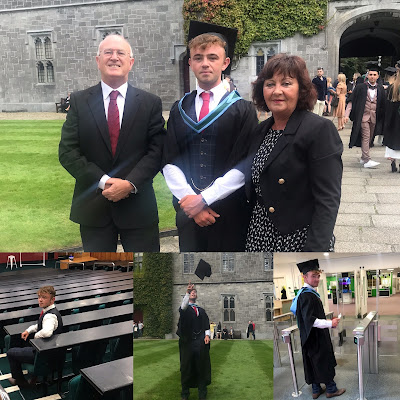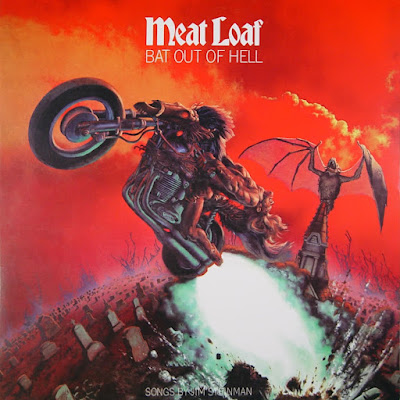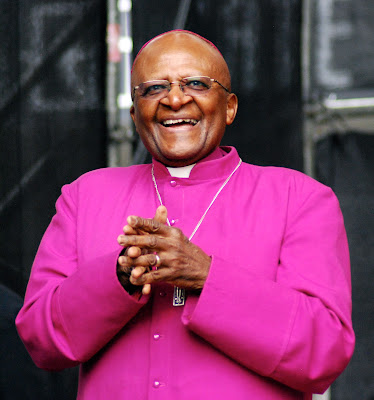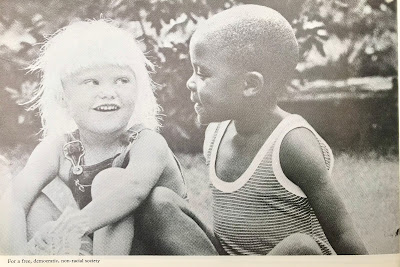My Writings (I hope!) reflect my Guiding Principles: -'Enjoy Life to the Utmost but not at other people's expense'-'Think Global, Act Local'-'Variety is the Spice of Life'-'Use Technology & Wisdom to Make the World A Better Place for All God's Creatures'-'Do Not Accept Injustice No Matter Where You Find It'-'Laughter is the Best Medicine'
When We Were Young- the university campus of my Student Days
Graduation Day- The End of an Era for our son, for his university and for his parents
"When We Were Young": Student Days & Nights at UCG’s Rag Week
Dancing to Music from Hell

From: International Defence & Aid Fund for Southern Africa, 1978
During my student and post student days I was involved in
the global campaign against institutionalised racism in South Africa, setting
up a branch of the Irish Anti-Apartheid Movement (IAAM) in UCG (now NUIG) during
1977, inviting its founder Kader Asmal to address the university’s Students’
Union assembly and being a participant in USI-led activities when student
leaders from Galway such as Mike Jennings, Padraic Mannion and Grainne McMorrow
were part of the movement during an era when powerful interests in Ireland
tacitly viewed apartheid as a ‘necessary bastion’ against ‘godless’ communism.
The IRFU arrogantly supported sporting tours from and visits to South Africa,
and businesses such as Dunnes Stores sold their farm produce in their
supermarkets. I demonstrated outside the Lansdowne Road stadium in the early
1980s during rugby matches alongside activists such as Michael D. Higgins, now President
of Ireland; stood on the picket line at the Dunnes Stores branch on Henry
Street in the mid 1980s with brave workers such as Mary Manning, sacked because
they would not handle South African oranges and vegetables. These pickets were largely
ignored by amongst others the wider Irish trade union membership until Bishop
Desmond Tutu gave them international recognition by inviting the strikers to
visit him in London during 1985 to thank them for their courageous efforts. In
the 1980s I proudly wore my ‘Free Nelson Mandela’ tee-shirt dancing to the song
of the same name by the Specials at alternative discos. I joined Michael D. and
Sabina Higgins with other Galway anti-apartheid activists as well as Labour supporters
in the Atlanta Hotel Dominick Street Galway on February 11 1990 as we emotionally
watched on a big television screen Nelson Mandela being released from Victor
Verster Prison after 28 years imprisonment.

Over recent years during my work visits to South Africa, I often met ANC veterans who talk admiringly of the grassroots support that they had from Ireland during the dark days. Some would proudly inform me that they, from many different religious faiths, had been given their education by Irish clerics who regaled them with stories of the centuries-long struggle for Irish independence. Many viewed the conflicts in Northern Ireland and their own country as part of the wider global movement against imperialism, based on overcoming political establishments that used racial/class discrimination and police brutality to keep indigenous populations under control. Sinn Féin and the African National Congress (ANC) saw themselves as brothers-in-arms and Gerry Adams was part of the official guard of honour at Mandela’s funeral in 2013. Kader Asmal, Trinity law lecturer and IAAM co-founder who later become a Minister in Mandela’s government, had in the 1970s and 1980s arranged meetings between the IRA and the ANC’s military wing. But Desmond Tutu was always against armed conflict and consistently called for a peaceful settlement to the ‘Troubles’.
These ANC veterans would have agreed with Tutu though that the
country still has so much to do to live up to the vision that both he and
Mandela had of an egalitarian non-sexist non-racist Rainbow Nation, and that
inequality, poverty, corruption, crime, femicide, xenophobia and racism were still
prevalent.
From: International Defence & Aid Fund for Southern Africa, 1978
During the apartheid era I, as a young impatient social activist, personally did often feel that Tutu, who was viewed internationally as the publicly acceptable tolerant face of the struggle for freedom, justice and equality in South Africa, was not radical enough and was too willing to cool the righteous anger of the oppressed masses. But in hindsight I admit that I was wrong and have over the years come to greatly admire the charming, smiling, gregarious, friendly, witty socialist churchman who was courageous beyond measure, willing to speak out against human rights abuses by the governments of Israel, USA, China, Soviet Union, UK and Myanmar.
A hero to so many over so many generations Desmond Tutu, throughout his long eventful life, saw himself first and foremost as a Christian priest rather than a politician who tried to live and to follow in the footsteps of his own hero, namely Jesus Christ. May he Rest in Peace/Ar dheis Dé go raibh a anam.
Joe Murray - One of life's gentlest and kindest gentlemen is no longer with us. Ar dheis Dé go raibh a hanam
- Brendan Speedie Smith
UCG Student Days & Nights– The wonderful Stories that must be told!
 |
| Dancing in the Aula on a Friday night, UCG, 1979 |
Calling all Graduates of NUI Galway. Vote Mike Jennings in next week's elections for the university's Governing Authority.
Please consider voting for Mike Jennings in next week’s elections to the graduate panel of the NUI Galway Governing Body
UCG Science Dress Dance 1979- The Boys of 80 Hazel Park!
Colin donates his favourite Pet to the museum!
Memories of the Lisdoonvarna Folk Festival
Ireland's first weekend youth musical festival took place during the summer of 1978 in what was then a backwater- Lisdoonvarna in County Clare. Thanks to the foresight of Jim Shannon and Paddy Doherty, it was the Electric Picnic of its time & an Irish equivalent of Woodstock.
The festival was billed as a Folk Festival. But though it started as an upbeat all-Irish Feilé, it expanded its repertoire over the years and hosted some of the finest musical acts on the planet including Jackson Browne, Van Morrison, Rory Gallagher, Emmylou Harris and Planxty.
 |
| Maria O'Malley from UCG & Mayo at Lisdoonvarna, 1978 |
Largely peaceful, the 1983 festival was marred by eight drowning fatalities at nearby Tra Leathan and by the violence that broke out when Hells Angels, inexplicably hired as festival security(!), started to beat up some of the festival goers. Thus ended a magical festival that corresponded too and reflected much of my fun student days and my political awakening.
For me, my happiest memory was in 1981 when Irish supergrpup Moving Hearts (Christy Moore, Davy Spillane, Declan Sinnott...) played highly politicized songs from their album of the same name. Songs such as 'No Time for Love', 'Hiroshima Nagasak'i and 'Before the Deluge' reflected the conflict in Northern Ireland, the H-Blocks, the early global environmental and the anti-war movements that were a largely youthful response to the real threat of mass annihilation that could have emanated from the 'Nuclear Arms Race' then taking place between the USSR and the USA.
What has Michael D Higgins Ever Done for Ireland & the Irish People?
 At the height of the Aids epidemic in1992, I was part of a nationwide
campaign known as CondomSense that wanted to liberalise the sale of condoms. We
saw such contraceptives as offering greater protection for women from unwanted
pregnancies and STDs. At this time, these pieces of rubber could only be
purchased with a doctor’s prescription from a pharmacy for ‘bona fides’ family
purposes. I was the only publican in Galway city that decided to openly defy
this law by installing condom vending machines. I was prosecuted by the state
and a jail sentence hung over me as I was brought through the courts system.
However by the summer, the government caved in and introduced a Health
Amendment Act that allowed
the sale of condoms outside of pharmacies and without a prescription (though
not in vending machines).
At the height of the Aids epidemic in1992, I was part of a nationwide
campaign known as CondomSense that wanted to liberalise the sale of condoms. We
saw such contraceptives as offering greater protection for women from unwanted
pregnancies and STDs. At this time, these pieces of rubber could only be
purchased with a doctor’s prescription from a pharmacy for ‘bona fides’ family
purposes. I was the only publican in Galway city that decided to openly defy
this law by installing condom vending machines. I was prosecuted by the state
and a jail sentence hung over me as I was brought through the courts system.
However by the summer, the government caved in and introduced a Health
Amendment Act that allowed
the sale of condoms outside of pharmacies and without a prescription (though
not in vending machines).Arts and Culture
As Minister, he expanded the Irish film industry from a small sector generating 11million pounds into an internationally recognised industry that was worth 186 million by the time he left office.
Michael D has always being more than just a career politician. He is multi-faceted in nature and has taken on many roles throughout his life- factory worker, lecturer, poet, socialist, humanitarian, journalist…
Michael D. Higgins: Conscience of the Nation























